ICSE 2021 panels offer a forum where prominent experts share and discuss different perspectives on trending topics in Software Engineering. Panels offer a live discussion on relevant topics and are guided by a moderator that facilitate the discussion, and manage questions from the audience.
Tue 25 MayDisplayed time zone: Amsterdam, Berlin, Bern, Rome, Stockholm, Vienna change
20:55 - 21:40 | Panel 1Panels at Panel Room +38h5min Chair(s): Davide Falessi California Polytechnic State University, David C. Shepherd Virginia Commonwealth University | ||
20:55 45mPanel | Are academics working on the right problems?Panel Panels Media Attached | ||
Wed 26 MayDisplayed time zone: Amsterdam, Berlin, Bern, Rome, Stockholm, Vienna change
08:55 - 09:40 | |||
08:55 45mPanel | Pass the Mic: Sustainability from Around the GlobePanel Panels Media Attached | ||
19:50 - 20:35 | Panel 3Panels at Panel Room +12h Chair(s): Patricia Lago Vrije Universiteit Amsterdam, Gail Murphy University of British Columbia | ||
19:50 45mPanel | What is a NIER paper in software engineering?Panel Panels Ivica Crnkovic Chalmers University of Technology, Paris Avgeriou University of Groningen, The Netherlands, Liliana Pasquale University College Dublin & Lero, Antonia Bertolino CNR-ISTI Media Attached | ||
Thu 27 MayDisplayed time zone: Amsterdam, Berlin, Bern, Rome, Stockholm, Vienna change
07:50 - 08:35 | |||
07:50 45mPanel | What is a NIER paper in software engineering?Panel Panels Ivica Crnkovic Chalmers University of Technology, Paris Avgeriou University of Groningen, The Netherlands, Liliana Pasquale University College Dublin & Lero, Antonia Bertolino CNR-ISTI Media Attached | ||
11:00 - 11:45 | |||
11:00 45mPanel | Are academics working on the right problems?Panel Panels Media Attached | ||
23:00 - 23:45 | Panel 4Panels at Panel Room Chair(s): Yu Huang University of Michigan, Emerson Murphy-Hill Google, Margaret-Anne Storey University of Victoria | ||
23:00 45mPanel | Diversity & Inclusion Panel Panels Brittany Johnson George Mason University, Alannah Oleson , Alexander Serebrenik Eindhoven University of Technology, Stephanie Forrest Arizona State University Media Attached | ||
Sustainability
Pass the mic: Sustainability from around the globe
Our aim for the panel is to pass the microphone to people we would otherwise not hear from at this conference, but who have something to say about what Software Engineering could do for society and the globe. Specifically, the countries and continents that are underrepresented at ICSE - Africa, South America, and South East Asia.
Our vision is “Let’s ask researchers from other sustainability research disciplines what they struggle with in software to see what we can learn from that for improving software engineering.” We want to relate specific sustainability domain expertise and experience to the topic of software engineering in the sense of “What should software engineers know about this perspective such that we become better at designing for inclusivity, diversity, and accessibility?” We inviting panelists from outside of software engineering but that work with technology, to hear how software is needed within their realm of research in addressing societal challenges in your context, and how that could be supported better. Our conviction is that as software engineers, we unconsciously embed the values we hold into the systems we design, and therefore it is important for us to get a wider perspective on what the world needs outside of our small usual bubble of experience.
Our panelists are experts in education, resources consumption, and Government data, production and analysis. We are excited to welcome you at the session and discuss new challenges and opportunities to serve that we may not have been aware of yet.
Panelists
Dr. Chao Mbogo
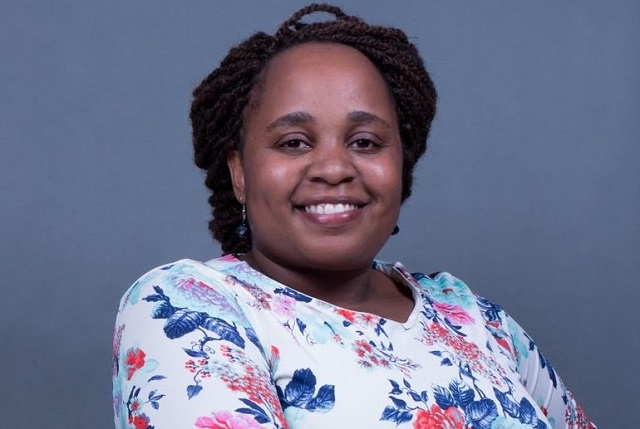
Dr. Chao Mbogho is a multi-award-winning researcher, educator, and mentor in Computer Science. She holds a Ph.D. in Computer Science from the University of Cape Town, an MSc in Computer Science from the University of Oxford, and a BSc in Mathematics and Computer Science from Kenya Methodist University. She has earned over twenty recognitions, fellowships, and awards for her work in research, education, and mentorship. For example, she was the first Kenyan to win the 2020 OWSD-Elsevier Foundation Award in Engineering, Innovation, and Technology, was also named as one of the 2017 Quartz Africa Innovators, was selected as a 2017 Techwomen Fellow, was awarded a Leadership ‘Zuri’ award for her positive contribution to the Kenyan community in 2018, and was also named as one of the 2018 Faces of Science in Kenya. In 2019, Dr. Chao was recognized by Okay! Africa as one of the women of African descent who are making a positive and impactful contribution to the youth in their communities.
Dr. Chao is an active advocate for quality education, research, and structured mentorship. She is now the Founder and Program Lead for KamiLimu, an impactful structured mentorship program that complements classroom learning for university students studying tech-aligned courses. Her mentorship initiative was awarded a 2020 Silver Award in the Nurturing Employability Category by the prestigious Reimagine Education Awards and Conference as a successful educational innovation, which is enhancing student learning outcomes and employability.
Dr. Chao is currently the Dean of the School of Science and Technology at Kenya Methodist University.
Dr. Champika Ellawala
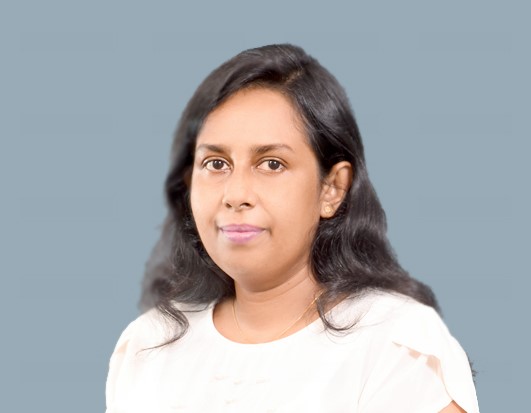
Champika Ellawala Kanakanamge
Senior Lecturer
Department of Civil and Environmental Engineering,
University of Ruhuna.
Dr. Champika Ellawala works on environmental management, ecosystem conservation and pollution control. Her research focuses on controlling invasive macrophytes in wetlands and river ecosystems and encouraging the natural resistance of native plants to invasive species. Further, she is interested in human behavior in relation to resource use and solid waste generation including E waste.
Dr. Yuri Castro
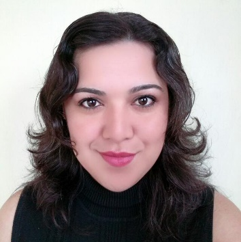
Master of Engineering from Kyung Hee University, South Korea, Yuri Castro studied science and systems engineering at the University of San Carlos de Guatemala, Guatemala, currently works in the National Secretariat of Science and Technology as ICT project manager, she is also professor at the Postgraduate Studies School of the Faculty of Engineering, Universidad de San Carlos de Guatemala. Yuri carries out data generation and analysis projects and collaborates with the Organization for Women in Science for Developing Word-OWSD- as strategic support in technical area and data analysis.
Moderator
Dr. Birgit Penzenstadler
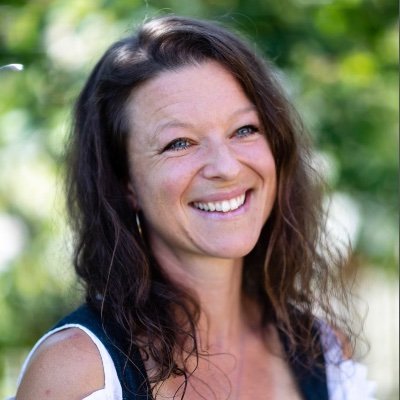
Birgit Penzenstadler is faculty at Chalmers University of Technology, Sweden, and Lappeenranta Lahti University of Technology, Finland. She has been researching the relation between sustainability and software engineering for a decade. Software systems inform and shape our future and consequently, software engineering holds key for transitioning towards a sustainable global society. Her recent research focus is how neuroplasticity practices can support in improving their presence, creativity, and overall resilience.
What is a NIER paper
What is a NIER paper in software engineering?
Writing and appreciating a NIER paper in software engineering is more challenging than one thinks. The vision, or intention, is to capture in a few pages the essence of a forward-looking idea, or of a thought-provoking reflection; at the same time, the authors should convey the solid scientific basis on which the idea or reflection is based. In turn, reviewers should appreciate the idea/reflection without all “bells in whistles” expected or possible in a long paper, like discussion of related works and validation. So, how can we address all requirements and expectations? Is that a question for the authors? for the reviewers? for both?
This panel wants to discuss what ingredients the community needs to attract and appreciate truly NIER papers that are able to spark new research directions.
Panelists
Dr. Paris Avgeriou
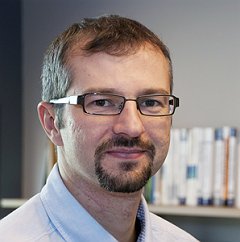
Paris Avgeriou is a Professor at the University of Groningen and Editor-in-Chief of the Journal of Systems and Software. He is co-chair of the Track on Ideas, Visions and Reflections at ESEC/FSE 2021.
Dr. Antonia Bertolino
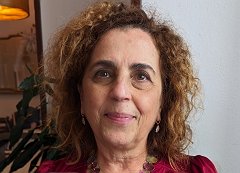
Dr. Antonia Bertolino is a Research Director at the Italian National Research Council, and her name is best known within the Software Testing discipline. Her first ICSE was in Seattle in 1995 and since then she has attended it almost every year serving many different roles (including NIER co-chair). She has not a definitive answer to what a NIER paper should be, as the question is more difficult than it appears, but she will be glad to share some perspectives.
Dr. Ivica Crnkovic
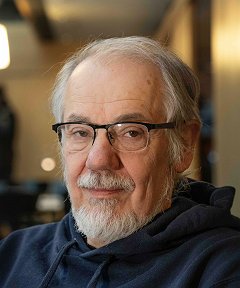
Dr. Ivica Crnkovic is a professor in Software engineering at Chalmers University of Technology , and director of Chalmers AI Research Center, and a member of Chalmers Software Center. His interest are in architecting dependable software-intensive systems, and recently software engineering for AI. He has been General Chair of ICSE 2018.
Dr. Liliana Pasquale
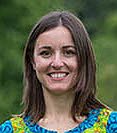
Dr. Liliana Pasquale is an Assistant Professor at University College Dublin (Ireland) and also a funded investigator at Lero - the Irish Software Research Centre. Her research interests are in requirements engineering and self-adaptive systems. She will be NIER co-chair of ICSE 2022.
Moderators
Dr. Patricia Lago
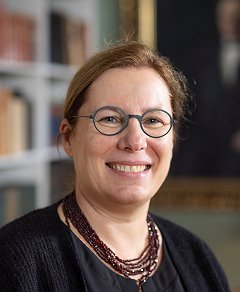
Dr. Patricia Lago is a professor at the Vrije Universiteit Amsterdam, the Netherlands, where she leads the Software and Sustainability (S2) research group in the Computer Science Department. She has a PhD in Control and Computer Engineering from Politecnico di Torino and a Master in Computer Science from the University of Pisa, both in Italy. She is a member of the IEEE ICSA and ECSA Steering Committees, and the Steering Committee Chair of the ICT4S conference series. She has published in all major conferences and journals in her field.
Dr. Gail Murphi
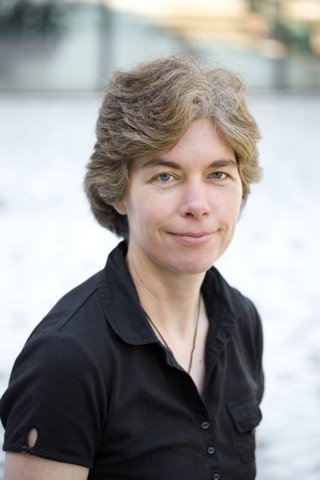
I am a Professor in the Department of Computer Science and Vice-President Research & Innovation at the University of British Columbia. I am also a co-founder and Director at Tasktop Technologies Incorporated.
My research interests are in software engineering with a particular interest in improving the productivity of knowledge workers, including software developers. My group develops tools to aid with the evolution of large software systems and performs empirical studies to better understand how developers work and how software is developed.
My teaching spans from introductory computer science courses to undergraduate and graduate courses in software engineering.
Relevance of Academic Research
Are academics working on the right problems?
Academic incentives, namely publications, are meant to encourage the creation of new knowledge. In software engineering research we do create new knowledge, with 1000s of papers written on the subject each year. However, according to a recent article "software engineering research is largely irrelevant". This panel tries to get at the heart of the problem, asking questions like "Are we working on the right problems?" and "How can we increase our relevance?". By engaging with two practicing industrial researchers and one practice-oriented academic we hope to inch closer to an actionable answer.
Panelists
Felienne Hermans

Felienne is associate professor at the Leiden Institute of Advanced Computer Science at Leiden University, where she heads the Programming Education Research Lab (PERL). Felienne’s work focuses on the question how to best teach programming to kids and students, investigating misconceptions, didactic strategies and programming environments. Felienne is a co-editor of the ACM journal Transactions on Computing Education, and a host at the IEEE podcast SE Radio, one of the most popular software engineering podcasts on the web. She writes a monthly column for Dutch IT magazine AG Connect and she ran the Joy of Coding conference for 6 years. When she is not coding, blogging or teaching, she is probably knitting, running or playing a (board)game.
Titus Barik

I’m a researcher at Microsoft. My research interests are in HCI and software engineering.
Jordi Cabot
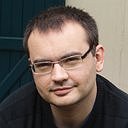
I’m an ICREA Research Professor at Internet Interdisciplinary Institute, a Research center of the Open University of Catalonia (UOC) where I’m leading the SOM Research Lab. Previously, I’ve been a faculty member at the École des Mines de Nantes and team leader of the AtlanMod Research group on an Inria International Chair and worked in Barcelona (Technical University of Catalonia ), Toronto (University of Toronto) and Milano (Politecnico di Milano). My research falls into the broad area of systems and software engineering, especially promoting the rigorous use of software models and engineering principles in all software engineering tasks while keeping an eye on the most unpredictable element in any project: the people involved in it.
Moderators
David Shepherd
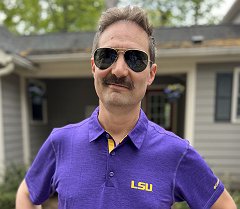
David C. Shepherd is an Associate Professor of Computer Science at Virginia Commonwealth University. He was a Senior Principal Scientist & Research Area Coordinator with ABB Corporate Research where he conducted research on topics from developer productivity to end-user programming for robots. He is passionate about increasing the impact of software engineering research, which has manifested itself in his professional activities. His day job serves as a ongoing personal experiment on how to, and how not to, transfer technology. His open source work has created a tool downloaded by 47,000+ developers. His recent chairing of five industrial tracks in software engineering (e.g., ICSE, FSE, ICPC, SANER, ICSME) gave him deep insight into the challenges and successes of others’ transfer efforts. His recent project, the FlowLight, which had exposure on venues like The Wall Street Journal and BBC Radio, opened his eyes to the impact of popular publications. Finally, his position as the Co-Editor-In-Chief of the Journal of Systems and Software gives him a more permanent platform to encourage industrial publications. David’s career goal is: To be a champion of impact through service and an example of impact through projects.
Davide Falessi
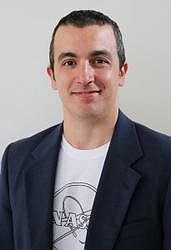
Davide Falessi works at California Polytechnic State University.
Diversity & Inclusion
Can researchers enhance diversity and inclusion?
In this panel, we discuss and debate how we can improve diversity and inclusion in the software engineering research community. ICSE has a long history of trying to improve diversity and inclusion, but despite that, we have a long way to go. Our panelists will present ideas that we will then debate and discuss with other members of the community.Panelists
Dr. Stephanie Forrest
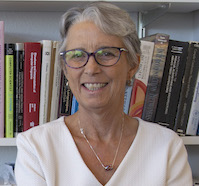
Dr. Stephanie Forrest is Professor of Computer Science at Arizona State University, where she also directs the Biodesign Center for Biocomputation, Security and Society. Prior to joining ASU, she was Regents Distinguished Professor of Computer Science at the University of New Mexico and served as Dept. Chair 2006-2011. She is currently a member of the External Faculty at the Santa Fe Institute, and served as Co-chair of its Science Board and as Interim Vice President. She is currently a board member of the Computing Research Association and Chairs its Government Affairs Committee. Her research studies the biology of computation and the computation of biology, including work on cybersecurity, automated software repair, evolutionary computation, and biological modeling. Some of her awards include: ICSE Most Influential Paper Award, IEEE Security and Privacy Test of Time Award, ACM/AAAI Allen Newell Award, and the Presidential Young Investigator Award. She is a Fellow of the IEEE.
Dr. Brittany Johnson

Dr. Johnson-Matthews is an Assistant Professor in the Department of Computer Science at George Mason University. She received her Ph.D. in Computer Science from North Carolina State University (2017), after getting her B.A. in Computer Science from the College of Charleston (2011). Her research is at the intersection of software engineering, human computer interaction, and machine learning. More specifically, she explores sociotechnical problems pertaining to developer productivity and software development/use, such as tool support, work environments, ethics, and software for social good.
Alannah Oleson
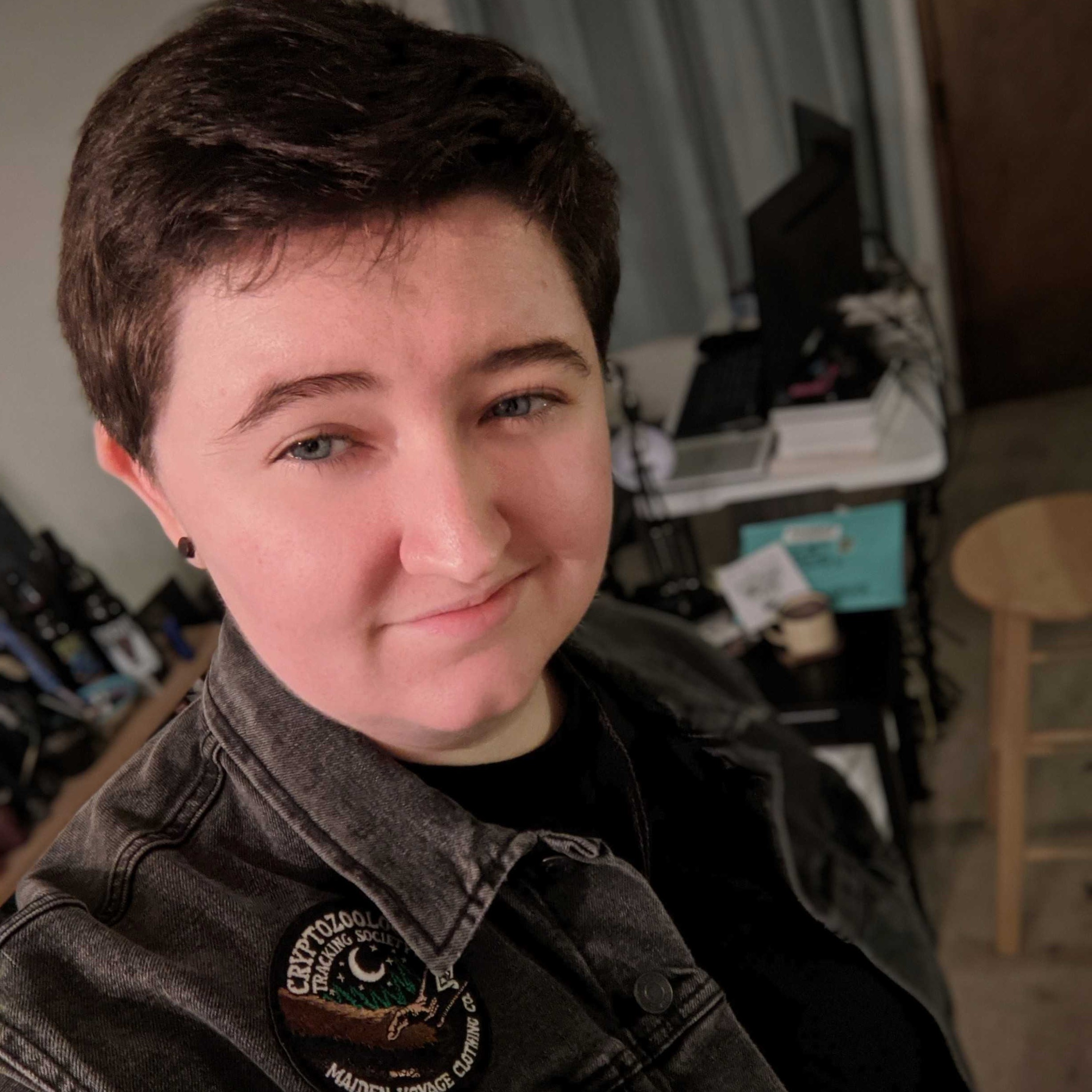
Alannah Oleson is a Ph.D. Candidate at the University of Washington Information School, advised by Prof. Amy J. Ko in the Code & Cognition Lab. Their research investigates inclusive HCI design education, exploring how we can prepare tomorrow’s computing practitioners to make software which fully supports users with minoritized gender, cultural, racial, ethnic, and/or class identities.
Alexander Serebrenik
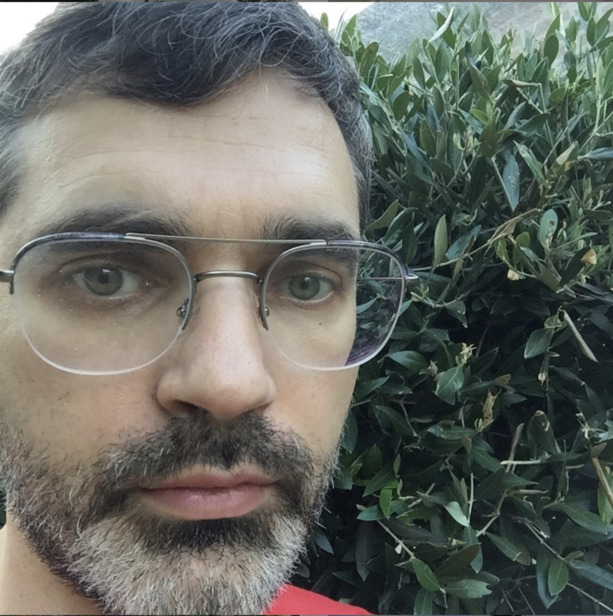
Alexander Serebrenik is a Full Professor of Social Software Engineering at Eindhoven University of Technology, the Netherlands (TU/e). He studies human aspects of software engineering, including topics related to diversity and inclusion. He also acts as equity, diversity and inclusion co-chair of ICSE 2021.
Moderators
Emerson Murphy-Hill

Emerson is a Staff Research Scientist with Developer Intelligence at Google, leading an effort on improving diversity and inclusion for software developers. Before Google, he was an Associate Professor at North Carolina State University. His research spans human-computer interaction and software engineering, and has been awarded several ACM SIGSOFT Distinguished Paper Awards, an NSF CAREER Award, a VL/HCC Best Paper Award, and a Microsoft Software Engineering Innovation Foundation award.
Dr. Margaret-Anne Storey
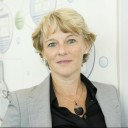
Dr. Margaret-Anne Storey is a Professor of Computer Science and a Canada Research Chair in Human and Social Aspects of Software Engineering. She seeks to understand how software tools, communication media, data visualizations, and social theories can be leveraged to improve how software engineers and knowledge workers create, explore, understand, analyze and share complex information and knowledge. She cares deeply about improving and diversity and inclusion in software engineering research and industry and is thrilled to be part of this panel.
Yu Huang

Yu Huang is a PhD candidate in the Department of Computer Science and Engineering at the University of Michigan, Ann Arbor. She will be joining Vanderbilt University as an Assistant Professor. Her research expertise lies in the intersection of software engineering and human factors. She is particularly interested in improving programming activities and developers' behaviors. She has received multiple grants to support both her research and her efforts to improve diversity in computer science. Her work has resulted in an ACM SIGSOFT distinguished paper award, and has been covered in multiple media outlets, including the 2020 GitHub Octoverse Report.